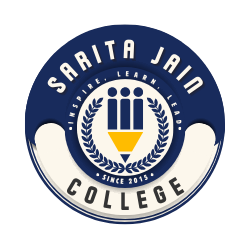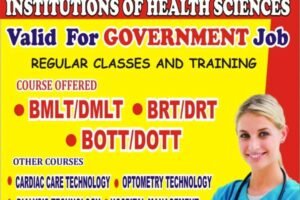The Rise of Vocational Education
In recent years, vocational education has gained prominence as an effective pathway to professional careers, particularly in the healthcare sector. Among the various vocational programs available, Bachelor of Vocation (B.Voc) degrees stand out for their practical approach and industry relevance. This article delves into how B.Voc programs are shaping careers in healthcare, exploring their benefits, the skills they impart, and their impact on the job market.

Understanding B.Voc Programs
What is a B.Voc Program?
A Bachelor of Vocation (B.Voc) program is an undergraduate degree designed to provide students with hands-on skills and practical knowledge in specific vocational fields. Unlike traditional academic degrees, B.Voc programs focus on industry-ready training, blending theoretical education with extensive practical experience. This approach ensures that graduates are well-equipped to meet the demands of their chosen profession.
Healthcare-Focused B.Voc Programs
In the realm of healthcare, B.Voc programs cover a variety of specialized fields such as Operation Theatre Technology, Optometry, Dialysis Technology, and Cardiac Care Technology. These programs are tailored to address the unique requirements of each specialty, offering targeted training that aligns with industry standards and practices.
The Benefits of B.Voc Programs in Healthcare
1. Industry-Relevant Skills
One of the primary advantages of B.Voc programs is their focus on industry-relevant skills. For healthcare students, this means acquiring practical expertise in areas like patient care, medical technology, and diagnostic procedures. The hands-on training provided in these programs ensures that students are not only familiar with theoretical concepts but also proficient in applying them in real-world settings.
2. Shorter Duration
B.Voc programs typically have a shorter duration compared to traditional undergraduate degrees. This allows students to enter the workforce more quickly, making them an attractive option for those eager to start their careers. The condensed nature of B.Voc programs does not compromise the depth of training; instead, it emphasizes essential skills and knowledge needed for immediate employment.
3. Enhanced Employability
The practical orientation of B.Voc programs enhances employability by producing graduates with specific skills that employers are actively seeking. In healthcare, where technical expertise and hands-on experience are crucial, B.Voc graduates are often preferred for their readiness to take on real-world challenges from day one. This targeted training also helps students build strong professional networks and gain relevant work experience during their studies.
4. Flexibility and Specialization
B.Voc programs offer flexibility and opportunities for specialization within the healthcare sector. Students can choose from various streams such as Dialysis Technology or Optometry, allowing them to focus on areas of personal interest and career goals. This specialization helps students develop deep expertise in their chosen field, increasing their chances of career advancement.
Vocational Education Key B.Voc Programs in Healthcare
1. B.Voc in Operation Theatre Technology
The B.Voc in Operation Theatre Technology program prepares students to assist in surgical procedures by managing and maintaining surgical equipment, ensuring sterile environments, and supporting surgical teams. Students gain hands-on experience in operating rooms, learning to handle various medical instruments and technologies used in modern surgeries.
2. B.Voc in Optometry
Optometry-focused B.Voc programs train students to diagnose and manage visual disorders and eye diseases. This program includes training in eye examinations, vision correction, and patient education. Graduates are equipped to work as optometrists or vision care specialists, contributing to the growing field of eye health.
3. B.Voc in Dialysis Technology
B.Voc in Dialysis Technology programs focus on training students to operate dialysis machines and provide care for patients with kidney-related conditions. The program covers aspects of renal physiology, dialysis procedures, and patient management, preparing graduates to work in dialysis centers and hospitals.
4. B.Voc in Cardiac Care Technology
The B.Voc in Cardiac Care Technology program equips students with skills to monitor and manage patients with cardiovascular conditions. Training includes working with cardiac monitoring equipment, performing diagnostic tests, and assisting in cardiac procedures. Graduates are prepared to support cardiologists and other healthcare professionals in delivering specialized cardiac care.
Vocational Education The Impact of B.Voc Programs on the Healthcare Sector
1. Addressing Skill Gaps
B.Voc programs play a crucial role in addressing skill gaps in the healthcare sector. As healthcare technology and practices evolve, there is a constant need for professionals who are up-to-date with the latest techniques and tools. B.Voc programs bridge this gap by providing current, relevant training that meets industry needs.
2. Promoting Career Growth
By offering specialized training and practical experience, B.Voc programs contribute to career growth and advancement. Graduates with a B.Voc degree often have a competitive edge in the job market, as their skills are directly aligned with industry requirements. This alignment increases their chances of securing employment and advancing within their chosen field.
3. Supporting Healthcare Innovation
B.Voc programs support healthcare innovation by preparing students to work with the latest technologies and methodologies.
4. Enhancing Workforce Readiness
The practical focus of B.Voc programs enhances workforce readiness by ensuring that graduates are job-ready upon completion. This immediate readiness is particularly valuable in healthcare, where professionals must quickly adapt to fast-paced and often high-pressure environments.
Choosing the Right Paramedical Course: Factors to Consider
Vocational Education Conclusion
The rise of vocational education, particularly through B.Voc programs, is significantly shaping careers in healthcare. By providing industry-specific training and practical experience, these programs are equipping graduates with the skills needed to excel in various healthcare fields. The focus on hands-on learning, coupled with shorter program durations and specialized knowledge, makes B.Voc degrees a compelling option for those seeking to enter the healthcare workforce efficiently and effectively.
As the healthcare sector continues to grow and evolve, B.Voc programs will play an increasingly important role in addressing skill shortages, promoting career advancement, and supporting healthcare innovation. For students passionate about pursuing a career in healthcare, B.Voc programs offer a valuable pathway to a rewarding and impactful profession.

